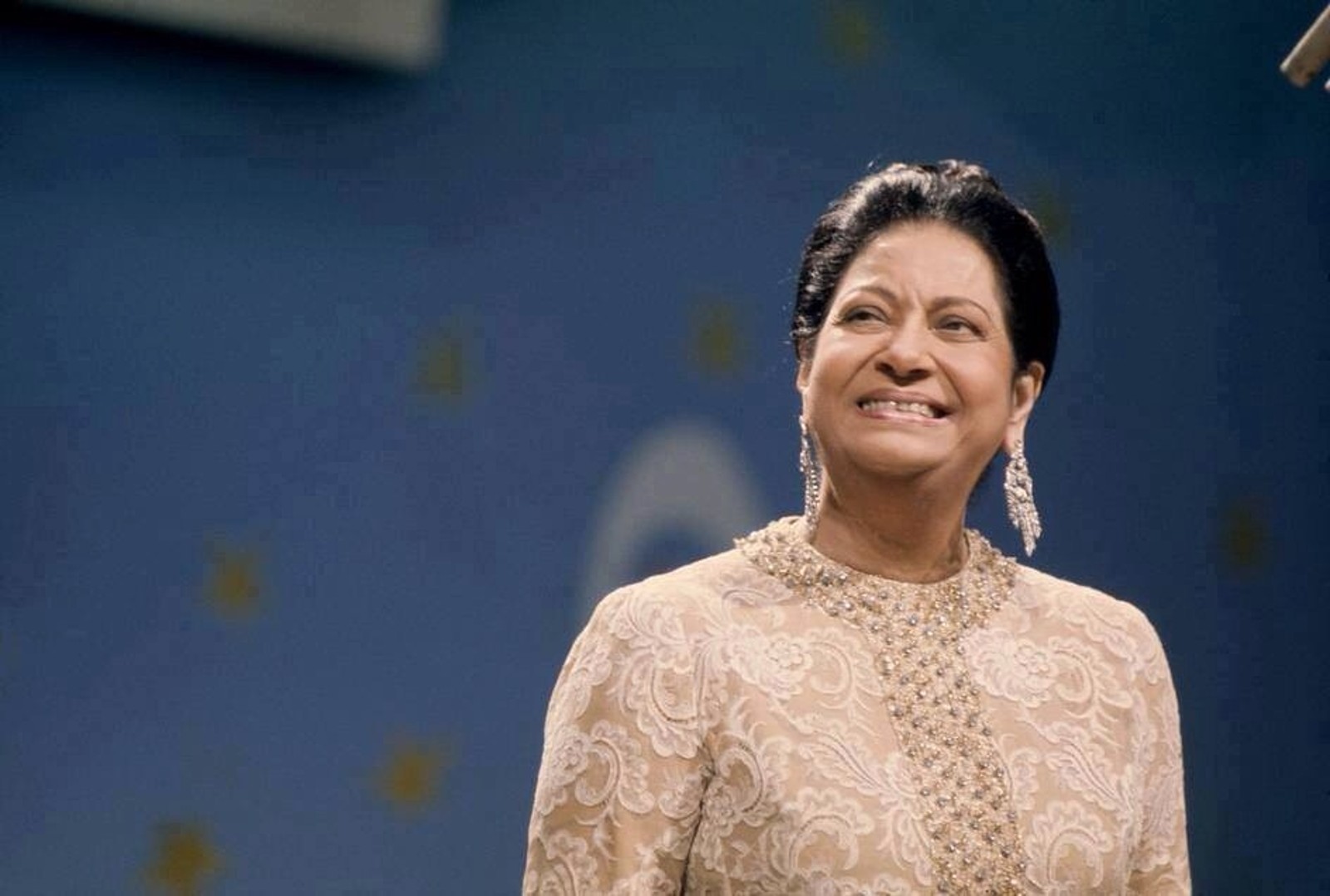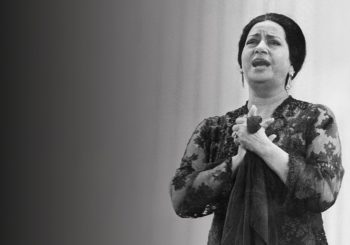At the end of Shakira’s 2006 tour, after more than an hour of witnessing her performance, the audience falls into a stillness as the intro of the iconic Egyptian song, Enta Omri (You Are My Life, 1965) by Umm Kulthum begins to play. The stage is cloaked in darkness, but two things continue to move: the notes of the electric guitar and Shakira’s body, flowing in harmony with every beat of the song.
At this point in the concert, the long, iconic intro of Enta Omri dissolves into a cinematic dream, moving in sync with Shakira’s moves. It feels as if the song is speaking to you, each rhythm rising and falling like a poem. And like a poem, it builds to a dramatic close that lingers in the air, as Shakira lifts the veil around her head, poised on the edge before she begins to belly dance.
But just when you think the poetry of the musical intro has reached its end, it shifts into an entirely new verse, one that feels more alive, more spirited. This is the moment Shakira begins to belly dance, and the arrangement blooms with richer layers: lush strings, the delicate pluck of the oud, and the shimmering tones of the qanun.
This is the genius of the long intro to Enta Omri; it never lets you settle into expectation. Just when you think it is about to begin, it continues to unfold, stretching and bending time as if it is writing its own. It holds every emotion in a few carefully chosen sounds; no lyrics, no voice, just the unspoken beauty of music. Before Umm Kulthum even utters a word, you already feel everything she is about to say.
Remembering the beauty of this long intro, composed by the legendary Egyptian musician Mohamed Abdel Wahab, feels especially poignant in a time when streaming platforms are pressuring artists to get straight to the point. On services like Spotify and Anghami, where no revenue is earned unless a listener makes it past the first 30 seconds, there is little room for lingering or slow build-ups.
The art of taking your time, of letting a song unfold like a slow stretch into eternity, is becoming a rarity.
In an age defined by speed and fleeting trends, Enta Omri stands like an ancient monument, untouched, unshaken, and still beloved across the Arab world and beyond. At the time of its release, it was nothing short of revolutionary. Abdel Wahab introduced a new musical language, layering traditional maqam-based melodies with the textures of Western classical and jazz. It broke boundaries, expanded horizons, and helped carry Arabic music to global ears without ever losing its soul.
But like the making of any genius masterpiece, its creation was not rushed, and its creator was not always confident or certain. It is said that both Abdel Wahab and Umm Kulthum sat with Enta Omri for years before it came to life. As their first collaboration, the stakes were high. Abdel Wahab even paused the project for so long that Umm Kulthum nearly turned to another composer. He revised sections again and again, carefully shaping the composition to match the full depth and range of her voice.
The anxiety of waiting for the audience’s reaction, not knowing whether the piece would soar or fall flat, was a risk even geniuses like Abdel Wahab knew all too well. There were no shortcuts to success, no viral moments or instant fame like the kind some young artists now find on TikTok.
Instead, it is said that Abdel Wahab stood nervously behind the curtain on the night of the first performance, quietly reciting verses from the Holy Qur’an, hoping, praying, that the night would land in triumph.
Yet the result was perhaps beyond anything Abdel Wahab or Umm Kulthum could have imagined. What has defined Enta Omri for generations is the indescribable beauty of its intro; an opening so evocative that each time you hear it, it feels like standing in complete darkness, just like in Shakira’s concert, where the only thing stirring is the emotion carried in each note.
It takes us back to a time when the most advanced technology was not mechanical; it was human feeling. Abdel Wahab was a visionary, not for building machines, but for knowing how to place emotion directly into people’s hearts.
In an era where innovation is often equated with tech, the genius of Enta Omri’s intro is its reminder that true innovation lies in the power to move people; to fill their hearts with beauty, even if it takes more time to do so.







Comments (0)